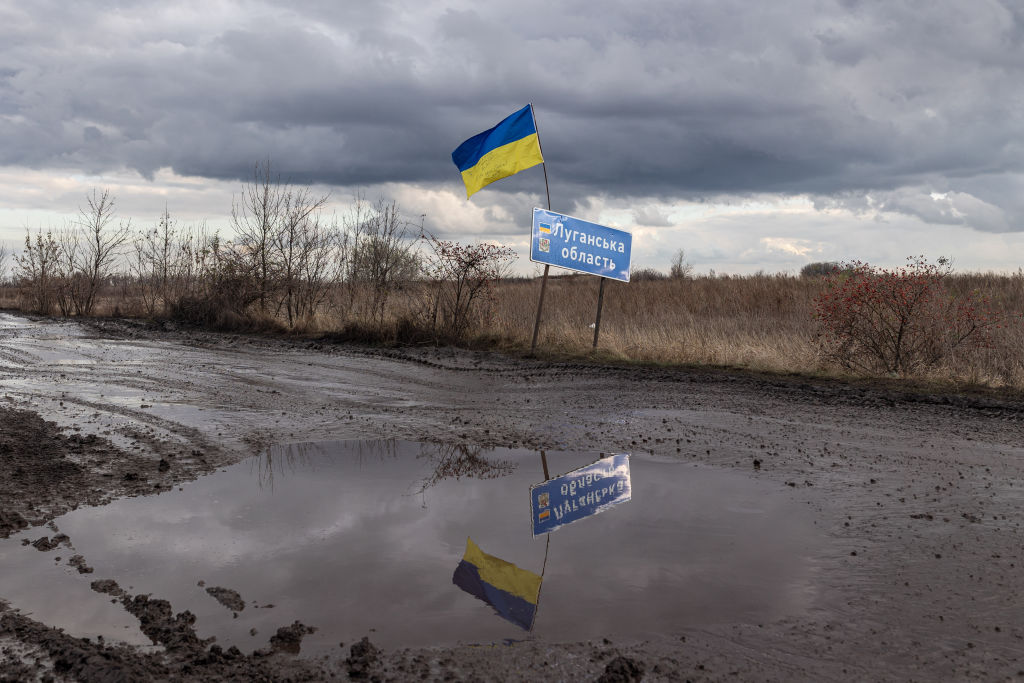
Things are looking up for Vladimir Putin. Ukraine’s much-vaunted counteroffensive has made little progress on the ground, heightening fears in the West that U.S. and European taxpayers are bankrolling an increasingly costly stalemate. Russian counterattacks have accomplished little, but the ability of well-entrenched Russian forces to absorb Ukrainian blows without buckling leaves the Kremlin in control of about 18 percent of Ukraine’s land. Russia has expanded its missile strikes to the highest levels this year and boosted in domestic production of missiles and ammunition. Significant material support from North Korea and more drones from Iran are helping.
Putin can also celebrate the fallout from Israel’s war with Hamas. The U.S. and Europe are mightily distracted by the carnage in Gaza, which is roiling their domestic politics. Western aid that might have gone to Ukraine is now sharing focus with support for Israel and humanitarian aid for Palestinian civilians trapped in harm’s way. Making matters worse, Washington and European governments don’t see eye to eye on this battle as they do on Ukraine, and divisions among Western governments are adding to the stress. The war in Gaza also helps Russia argue that America is run by neocolonialist hypocrites who make righteous speeches about human rights in Ukraine while green-lighting Israel’s assault on Palestinians who can’t flee as Ukrainians have.
Quietly, Western leaders are warning Ukraine’s President Volodymyr Zelensky that time is not on his country’s side. Despite the fights in Washington over Ukraine funding, more U.S. aid is probably coming. President Biden should still be able to secure a decent fraction of the $60 billion in military support he has requested from Congress. But uncertainty about the future of U.S. support is taking hold.
Read More: Zelensky's Struggle to Keep Ukraine in the Fight
Yet, Western efforts to push Zelensky to begin bargaining with Putin will are going nowhere for now. Ukraine’s president is in no position to offer up captured Ukrainian land that tens of thousands of his soldiers died to defend. That’s especially true at a time when other voices are finding favor with the Ukrainian public—see recent public comments from Valery Zaluzhny, Ukraine’s top military commander—and as he faces growing pressure to drop his objections to holding a wartime election in 2024.
More From TIME
What could the West offer Zelensky in exchange for his willingness to begin haggling with Putin? On the economic side, the West could promise to finance full reconstruction of the country—including via the seizure of Russia’s frozen assets. The European Union could promise (eventual) membership. On the security side, NATO could offer full membership, with the protection guarantees that come with it. But members on both sides of the Atlantic will balk at moving large numbers of troops and weapons into Ukraine and at committing to war with Russia if missile strikes continue across the country. The U.S. can send Ukraine more advanced weapons systems in 2024, and NATO leaders can use the 75th anniversary summit next July to make some commitment on Ukraine’s future membership. But what happens if Donald Trump then wins the White House? What would that mean for NATO commitments—or for the future of NATO itself? No one can answer these questions with confidence.
Knowing all this, Putin has no interest in offering any credible concession that Zelensky believes he could afford to accept. It’s too easy for Russia’s president to call up more recruits in numbers Ukraine can’t match, even if only to throw them on the fire. He can also wait and see what happens to Western support over the next year and what American voters decide next November. Aware of all this, Zelensky has no incentive to offer anything he knows Putin will only see as a sign of weakness.
For all these reasons, the stalemate in Ukraine will likely extend for (at least) another year.
More Must-Reads From TIME
- The 100 Most Influential People of 2024
- Coco Gauff Is Playing for Herself Now
- Scenes From Pro-Palestinian Encampments Across U.S. Universities
- 6 Compliments That Land Every Time
- If You're Dating Right Now , You're Brave: Column
- The AI That Could Heal a Divided Internet
- Fallout Is a Brilliant Model for the Future of Video Game Adaptations
- Want Weekly Recs on What to Watch, Read, and More? Sign Up for Worth Your Time
Contact us at letters@time.com